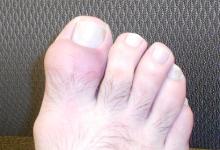Biosimilars and the FDA Save

Biosimilars are in the news and will be prominently on parade at next week's ACR meeting in San Francisco. Biosimilars are similar to, but not the same as, innovator biologics.
CMS defines a biosimilar biological product as, “A biological product approved under an abbreviated application for a license of a biological product that relies in part on data or information in an application for another biological product licensed under section 351 of the Public Health Service Act (PHSA) as defined at section 1847A(c)(6)(H) of the Act.”
Sections 7001-7003 of the Patient Protection and Affordable Care Act (ACA) amended the Public Health Service Act (PHS Act) creating an abbreviated approval pathway for biological products that are demonstrated to be “highly similar” (biosimilar) to or “interchangeable” with an FDA-approved biological product and granting the Food and Drug Administration the authority to approve biosimilars. These new statutory provisions in the ACA are referred to as the Biologics Price Competition and Innovation Act of 2009 (BPCI Act).
Healio reports that biosimilars have been available in the European Union and been approved by the European Medicines Agency (EMA) since 2005. In the USA the only biosimilar thus far approved is Zarxio (filgrastim, Sandoz), a biosimilar to G-CSF, Neupogen (filgrastim, Amgen). Several applications for monoclonal antibodies (mAbs) for treatment of rheumatic diseases have been submitted and ther are more to come.
But the pathway to biosimilar approval has not been swift or clear. During a recent U.S. Senate hearing with Janet Woodcock, MD, the FDA’s director of the Center for Drug Evaluation and Research (CDER), acting director of CDER’s Office of Pharmaceutical Quality and rheumatologist, Sen. Christopher S. Murphy (D-Conn.) both agreed that while biologic therapies comprise less than 1% of the U.S. health care prescription drug market, these treatments account for 28% of prescription drug spending and both the frequency of use and costs are expected to increase.
During the hearing, Sen. Elizabeth Warren (D-Mass.) said eight biologic drugs comprise 40% of all Medicare Part B spending, and biosimilars are projected to save $44 billion during the next 10 years.
According to Dr. Vibeke Strand, the goal of the BPCIA is to provide the framework to reduce the time to approval, and thus the cost to develop and test biosimilar products. She said the goal of manufacturers is to invest less in the process compared to the costs invested in developing the reference (innovator) product.







If you are a health practitioner, you may Login/Register to comment.
Due to the nature of these comment forums, only health practitioners are allowed to comment at this time.